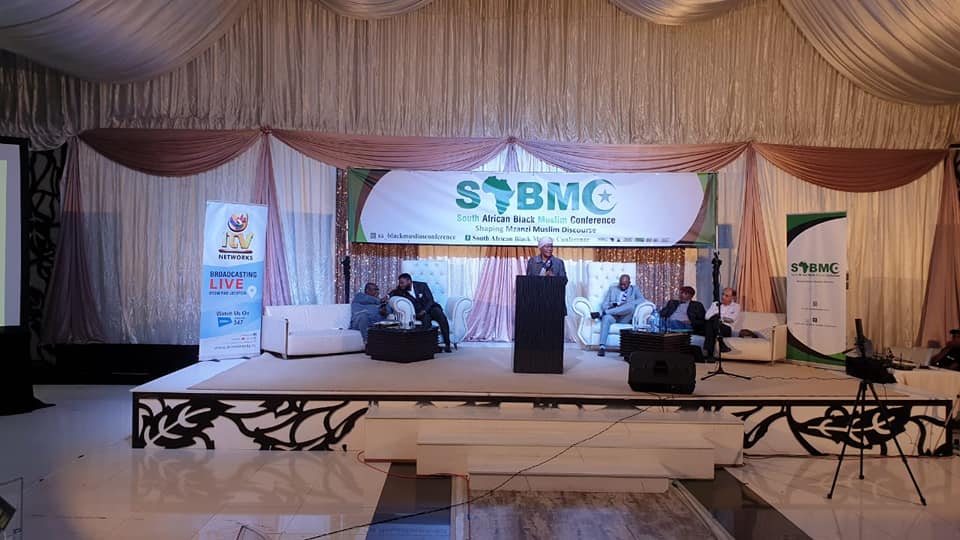Despite drawing strong criticism from some quarters, organisers of the inaugural Black Muslim Conference in South Africa have described the event as historic and ground-breaking. The conference, which took place in Mayfair in Johannesburg over the weekend, aimed to outline issues facing black Muslims in South Africa and to foster constructive and productive discussion around these issues. Unsurprisingly, many issues were raised in the conference – ranging from social infrastructure and self-reliance, to Islamic attire and reconciling culture with Islamic values.
President of the Gauteng Shura Council, Amir Muhammed Gadimeng told VOC Drivetime that the conference was a “great success”.
“The main topics dealt with were around the issue of self-reliance – [including] building our own social infrastructure (and running and operating them), empowering and developing our maulana’s as well as looking at their status in the townships and the roles they need to play in society. We also looked at how best we can take Islam to the general population of South Africa,” said Gadimeng.
There has been a negative backlash from some others within the Muslim community, with claims that the event perpetuates racial segregation and exclusivity – all of which contradicts the Prophet Muhammad’s (PBUH) model of social cohesion and integration in Islam. Some online detractors even went as far as calling the conference “un-Islamic”.
While the organisers are aware of this criticism, they feel there is space for dialogue of this nature as challenges facing black Muslims in contemporary society are unique. Many black Muslims feel there is a silent denial of the African heritage in South Africa.
In this regard, the issue of reconciling African tradition, culture and clothing with Islamic principles and values was addressed by Gadimeng.
He highlighted the fact that African cultures at times have their own understanding and preferences where clothing is concerned and that it need not contradict or clash with Islamic values.
“It would be nice if we were to find ourselves in the space, as South Africans, where we have Islamic attire that incorporates almost everyone, and everyone is in agreement with it.”
“To us as Africans, being dressed up in a black cloak means something else. To be dressed in black means something else.”
“Africans should not feel left out [of Islamic culture]. The majority of our people [in South Africa] are Africans. It’s our responsibility to give da’wah to them. There are a lot of misconceptions out there. It’s our responsibility to clear those misconceptions as Muslims,” said Gadimeng.
Gadimeng added that while there are some differences between Islamic practices and the various traditional African cultural practices, there are also many similarities.
“Whether you are amaXhosa, amaZulu, or Venda, the customs of burial and many other traditions, are similar. The only difference is language and maybe foods and so forth, but our customs are one. I remember when I reverted to Islam, my aunt was saying to me, ‘it means when you die you have to be buried within a few hours! If you are far from us how are we going to do that?’. So, I asked, ‘how was my grandfather was buried?’. They said ‘within two days, with the skin of a cow’. I said, ‘look I want to be buried the same way, except not with the skin of the cow’.”
“So, our Islam is not in contradiction with the culture,” said Gadimeng.
Gadimeng further illustrated the need to accept and consider other cultures in Islam by referring to marriage traditions. He urges people to try to integrate cultures into Islam. In doing so, he believes it will strengthen the Din and promote familial ties in accordance with the importance those ties have to us as Muslims.
“You can’t completely reject people’s culture,” said Gadimeng while discussing Islam and traditional African Marriage traditions.
“We need to go out and try to understand cultures, to see how best we can integrate our African culture into Islam.”
“Most times you find alims study what Islam says, but they are not looking at what culture says and the practices and traditions within a culture.”
“Lineage is very important in Islam, yet we want to break it. We are contradicting ourselves with our actions,” said Gadimeng talking about the need to maintain familial ties when Islam and African traditions are simultaneously involved in the lives of people.
The Black Muslim Conference has hopes to become an annual event and has made such an undertaking in a declaration at the past conference.
VOC






 WhatsApp us
WhatsApp us 

